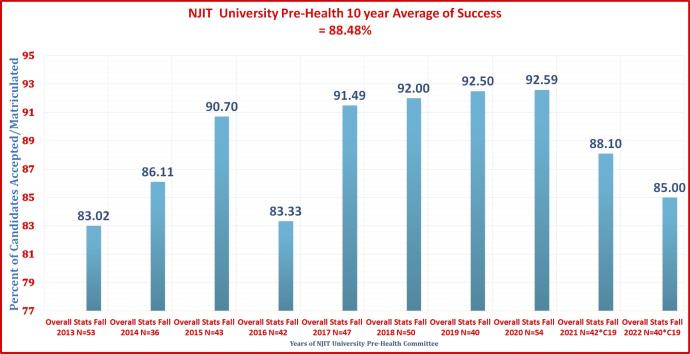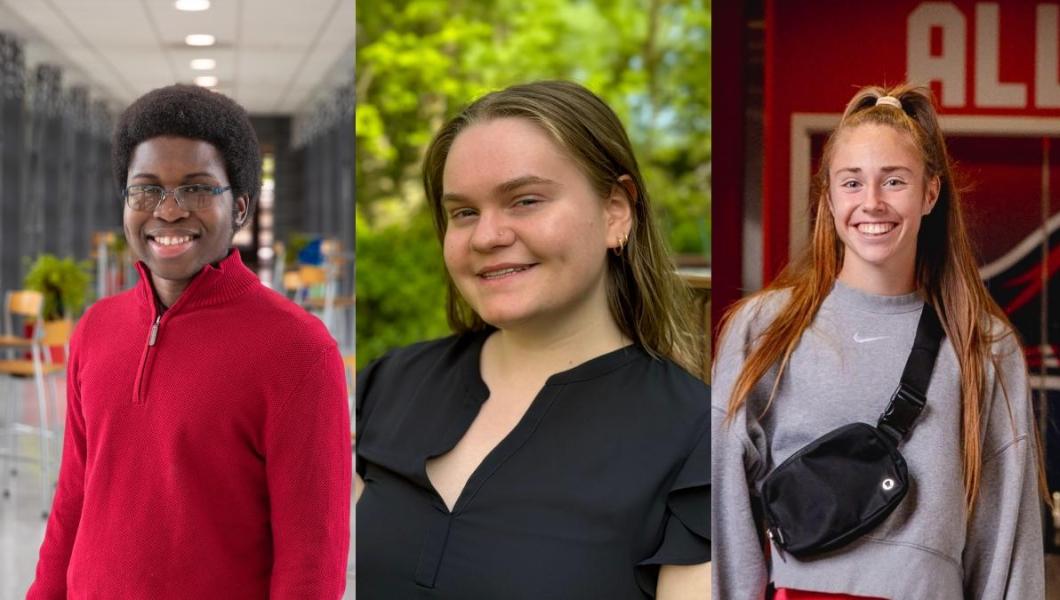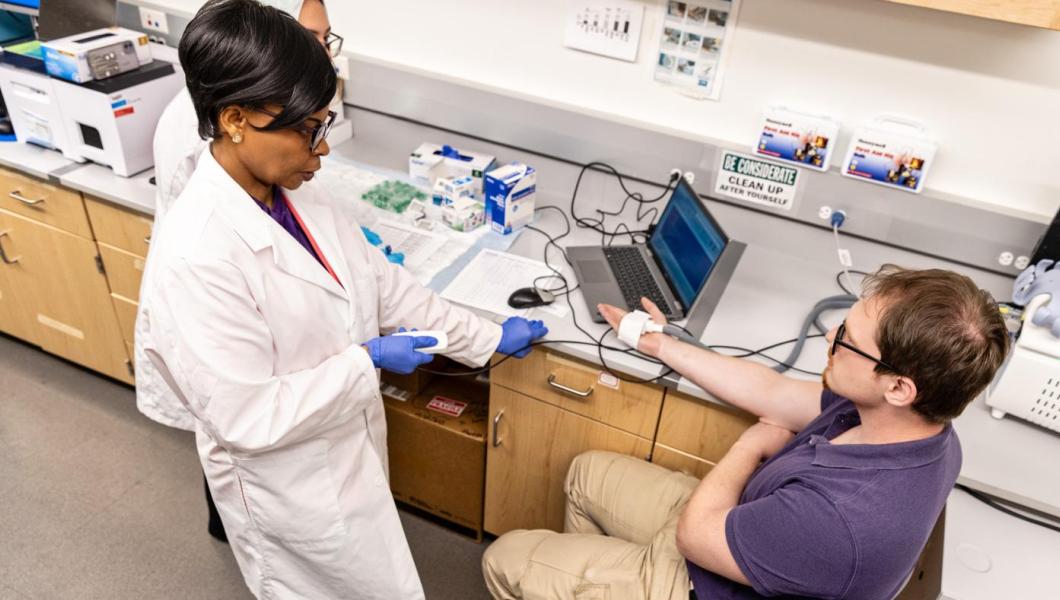Perfect Record: All of NJIT's Pre-Health Seniors Accepted into Grad Programs

There aren’t many better places in the region to be than NJIT if you’re an undergraduate student aspiring to become a medical professional, and the numbers are backing it up.
This year’s entire graduating cohort from NJIT’s Pre-health Program has been accepted and is matriculating into graduate health professional programs of their choice, according to NJIT’s College of Science and Liberal Arts (CSLA).
The success of 2023’s class of 33 pre-health majors marks the first time the program has reported a perfect acceptance rate since being established under CSLA’s Department of Biological Sciences in 2010.
“NJIT has worked hard building up to this achievement,” said Darshan J. Desai, director of the university’s pre-health program. “CSLA’s incredibly committed faculty and staff have had a big part to play in this success, but it really begins with the caliber of our students and their hard work.
“Our students are getting noticed for the value they bring in their applications to some of the most competitive graduate health professional programs. Nationally, admissions offices now know NJIT students rank up there with candidates from the most recognized pre-health programs in the U.S.”
The success of this year’s cohort isn’t a total outlier, says Desai. It punctuates a sparkling record that the program has boasted for more than a decade.
NJIT’s pre-health students’ acceptance rate over the last 10 years is 85% on average — roughly double the national average of 42% for similar institutions, according to data provided by the Association of American Medical College.
And the success of NJIT students seeking to advance in the broader range of health professions — including fields such as dentistry, optometry and nursing — is even better.
“Our 11-year average is 88.6% of all pre-health cohort of students, meaning students applying to all graduate health professions programs, not just medical school,” said Desai. “Our pre-health committee members are highly invested in our students and deserve credit.
“As a smaller program, we can offer a ‘concierge level’ of advising and supervision that helps drive the positive outcomes for our undergrads.”
A Student Focus
Recently graduated pre-med seniors, such as Waleed Mujib ’23, aren’t surprised by the success of this year’s class.
Mujib has chosen to study medicine at University of Pennsylvania (Perelman) this fall after being accepted into some of the nation’s top medical schools, including Yale and University of Virginia among others.
“What stands out to me is the tight-knit, collaborative environment NJIT offers. …. The smaller class sizes and individual attention the pre-health students get is an advantage over what students might experience at a larger institution,” said Mujib, an Albert Dorman Honors scholar from Jamesburg, NJ. “Dr. Desai is another big part of the students’ success in terms of staying on top of the pre-meds and making sure they are where they want to be by the end of their journey in the program.”
Mujib_prehealth success_edit.jpg

Mujib says most of NJIT’s pre-health majors are connected with important research opportunities early on, significantly bolstering their credentials when it comes time to apply for medical schools.
“When you’re at an institution like NJIT, you're able to see all the opportunities that are there for you. People are willing to help you all the way,” added Mujib, who earned a Provost Undergraduate Research and Innovation Summer Fellowship his freshmen year to conduct neuroscience research at NJIT’s Center for Injury Biomechanics, Materials, and Medicine.
Mujib spent several years conducting and publishing research exploring how post-traumatic blast injury can potentially lead to epilepsy development. “I've been able to develop strong study skills and I had the opportunity to involve myself in a lot of meaningful extracurricular research, which will be critical for me going forward.”
Meanwhile, other recent graduates such as Sreya Sanyal ’22, who now works for the National Institutes of Health studying cancer biology, have credited the program’s interdisciplinary approach that focuses on creating well-rounded students who understand the “why” behind their pursuits in medicine.
“NJIT’s history department’s professors sit with biology department faculty on the pre-health program’s committee,” said Sanyal, a Goldwater Scholar and former biology/history major. “There’s a good conversation between disciplines that you see in courses, like “Ecology and Evolution of Disease” and “Disease, Health, and Social Justice”. That’s guided my career research aspirations and improved my ability to see the bigger picture in my work.”


